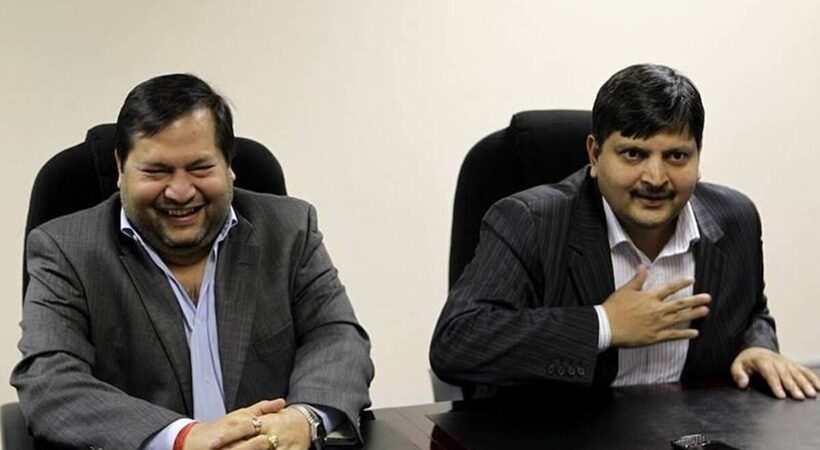The South African government said on Monday that the Gupta family, Rajesh and Atul Gupta, have been detained in the UAE by law enforcement officials.
It’s still unclear why Ajay, the third brother, was not detained. The Gupta brothers are accused in South Africa of profiting financially and influencing top appointments through their ties with former President Jacob Zuma, which they deny.
Authorities stated the Gupta family went into self-exile in Dubai in 2018 after stealing billions of rands from South African parastatal institutions.
“The ministry of justice and correctional services confirms that it has received information from law enforcement authorities in the United Arab Emirates that fugitives of justice, Rajesh and Atul Gupta, have been arrested,” the South African Department of Justice and Correctional Services said in a statement on Monday.
“Discussions on the way ahead are continuing between several law enforcement authorities in the UAE and South Africa. The South African government will continue to co-operate with the UAE,” it added.
The Gupta brothers had been branded persona non grata by the US and the UK, and Interpol had issued Red Notices to them.
For fugitives wanted for prosecution, Red Notices are issued to inform law enforcement authorities throughout the world to capture them pending extradition.
The family departed South Africa in 2018 as the noose tightened on them, with the ANC finally replacing Zuma and electing Cyril Ramaphosa as Acting President as a result of massive public protests.
South Africa has already approached the UN to have the Guptas extradited after discussions with the UAE failed due to a lack of an extradition treaty between the two nations.
After the pact was passed in June 2021, South Africa began the process of demanding the Guptas’ extradition.
After a number of witnesses identified them and Zuma in corrupt cases, the Guptas notified the Commission of Inquiry into State Capture in 2018 that they were unwilling to return to South Africa to testify.
In their affidavit to the inquiry, the brothers described the South African authorities as “recklessly inept”.
During Zuma’s nine-year presidency, a number of witnesses testified about the Guptas’ participation in plundering vast sums of money and influencing the nomination of Cabinet members.
Despite the fact that the arrests were generally applauded, commentators warned that the public should not anticipate a rapid resolution to the case against the Guptas, which might take years as they exhaust all legal options to avoid extradition.
According to Wayne Duvenhage, CEO of the Organisation Undoing Tax Abuse, the Guptas plundered about 15 billion rands before fleeing the country, according to their findings.
In the early 1990s, the Gupta family, coming from India’s Saharanpur, established a shoe store in South Africa. They quickly grew to encompass IT, media, and mining firms, the majority of which have since been sold or shut down.
When it was revealed that the Bank of Baroda (BoB) had aided the Guptas by creating accounts for them after other South African banks had stopped dealing with the family, the controversy erupted. BoB later shut down its business in South Africa, claiming a global reduction in activities.



















